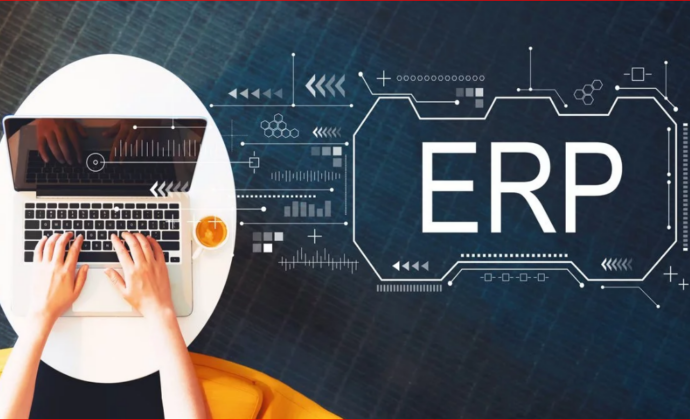Enterprise resource planning (ERP) is software for managing day-to-day business operations, like accounting or inventory management. Due to its centralized database, cross-functional teams in organizations can utilize this software for certain requirements.
Although big organizations often use ERP Development systems for managing operations, today small businesses are also opting for it. SMB Solutions offers reliable ERP software solutions to businesses to boost their sustainable growth and efficiency. Continue reading the blog to find out about ERP in detail to understand why it’s beneficial and what industries need it today.
Why is ERP Important?
ERP is software, technology, and tools utilized to automate everyday business operations, like supply chain, accounting, manufacturing, and more. There are different modules in this software for handling all these processes.
ERP integration helps in streamline all company data within one database system. Hence, there’s only one source for accessing and saving data. Due to this, companies can easily automate their time-consuming and hectic manual tasks while saving their money and time. If you are finding the best ERP Integration company in Kuwait, SMB Solutions is best choice for you.
How Does it Work?
If organizations start using different software systems for automating their workflow, their employees have to learn various software tools for managing simple tasks. Contrary to that, enterprise ERP offers a central database system for streamlining all planning and data within one source.
ERP modules may include:
- Human Resources
- Supply Chain Management
- Project Management
- Inventory Management
- Risk Management
- Warehouse Management
- Business Intelligence
- Finance and Accounting
- Sales Orders and Planning
- Research and Development
- Data Analytics
Benefits of ERP-Enterprise Resource Planning
- Given below are several benefits of implementing an ERP system in your organization:
- Improved customer service with better access to customer information, improved on-time delivery, and faster response times.
- Better business reporting due to advanced reporting tools, offering real-time information.
- Boosted cash flow due to better invoicing and cash collection tools.
- Enhanced inventory costs, which allow you to carry the optimal inventory – not too much or too little.
- Increased cost savings with better inventory planning, better customer service, better procurement management, and enhanced vendor relationship management.
- Improvements in business processes with automation of routine tasks and implementation of smarter workflows.
- Better data and cloud security due to dedicated security resources along with the distribution of data across various servers.
- Improved supply chain management with a reduction in production bottlenecks and transparency through various processes.
Types of ERP
Here are the three types of ERP systems you need to know about:
Cloud-based ERP
There are several ERP systems online within “the cloud” instead of a physical data center within an organization. Thanks to the cloud-based ERP system, it’s easier to centralize all relevant online data of businesses. This makes it easily accessible to employees across the globe. Furthermore, it regularly updates the system and is equipped with advanced analytics capabilities and artificial intelligence.
On-site ERP
This is a traditional ERP that’s housed at the business’ physical data center on-site. Unlike the cloud-based system that relies on online solutions, businesses need to implement and maintain it themselves.
Hybrid ERP
Hybrid ERPs are a combination of on-site ERP systems with cloud-based systems. Organizations that invest significantly in house-sensitive data on-site or on-site systems need to pair them with the cloud. This helps them to attain the benefits of upgraded cloud systems without sacrificing what’s existing.
Industries Benefiting from ERP
Given below are several benefits of the ERP system:
- Healthcare
- Manufacturing
- Construction
- Hospitality
- E-commerce businesses
- Food and beverage
- Transport and logistics
- Government
- Telecommunications
- Non-profit organizations
- Media and entertainment
Careers Utilizing ERP
Here are four career paths that utilize Enterprise ERP software as a major part of their role:
Business Analyst:
They are responsible for solving internal business issues, so they need to implement certain strategies to boost business operations, like ERP systems. A business that’s already using ERP requires an ERP operations analyst to form new workflows for optimizing their operational capacity.
Data Architect:
They help in forming information architecture and implementing data within an ERP. They specialise in systems engineering and architecture to implement them in data strategy operations.
Database Administrator:
A database administrator focused on ERP helps a specific team with maintenance and technical support for the ERP system. With the use of SQL, the database administrator can even optimize objects, procedures, and functions within the system.
Project Manager:
They can focus on ERP to help organizations and teams manage better use and implementation of ERP systems. They understand the wide range of ERP applications and can coach employees to boost productivity using these advanced systems.
Conclusion
Using the right ERP system can help your business attain the benefits we’ve listed in the blog. While evaluating solutions from various providers, you need to ask yourself and research what type of benefit your company needs from it.
SMB Solutions, leading Frappe ERPNext partners, assures the ERP system keeps up with your firm’s changing needs with consistent upgradation. For more assistance, contact the team of SMB Solutions Kuwait right away. We will be happy to team up with you on your ERP journey. Continue reading our other ERP-related blogs for more information before implementing this advanced system. Hence, you can effectively plan your ERP journey.


